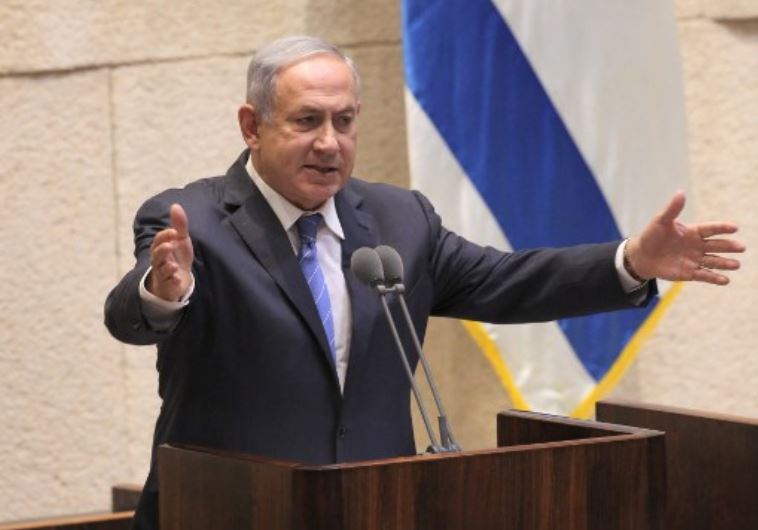Netanyahu relishes political theater at his first question hour
From corruption allegations to term limits to settlements, prime minister had a snarky answer to everything.
 Prime Minister Benjamin Netanyahu addresses the Knesset in Jerusalem(photo credit: AFP PHOTO)Updated:
Prime Minister Benjamin Netanyahu addresses the Knesset in Jerusalem(photo credit: AFP PHOTO)Updated: